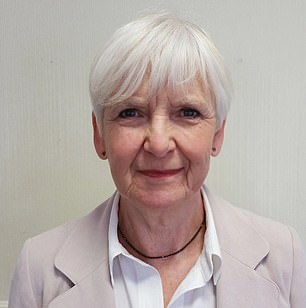A Community Interest Company is a special form of firm that aims to provide a benefit to the community they serve. It’s purpose should be primarily one of community benefit rather than private profit, such as helping vulnerable people, supporting a purpose or running a community cafe.
But Jill Poet, the co-founder and chief executive of the Organisation for Responsible Businesses, fears that the model for these companies is being mis-used. She explains why.
I’m concerned the Community Interest Company model is being abused by organisations keen to gain a competitive advantage by becoming a registered CIC, a specific legal entity for social enterprise.
Now there is absolutely no question there are hundreds of excellent CICs across the UK making a positive impact for people and the planet in numerous ways.
Indeed, I registered one of my own companies as a CIC in 2008, only three years after the legal framework was introduced, because I believed in the concept. At one point, I was the chief executive of three CICs.
But being a CIC can bring advantages that can put other businesses at a disadvantage — and some, increasingly, see it as a way to secure a competitive edge without authentically committing to the principles of social enterprise.
Grants are also often available to CICs that other businesses, which may be equally purpose-led, simply cannot apply for.

Outdated model: Some CICs are not committing to their founding principles
There have been incidences where deeply purpose-led businesses have gone under because a CIC has received considerable grant funding to launch an almost identical business nearby, with the funding providing advantages that the existing companies did not have.
Being a CIC can also make you more likely to secure contracts with bigger organisations that see you as an additional tick in their ESG checklist — they believe they are doing the right thing when they ‘buy social’.
Similarly, being a CIC can help companies win public sector contracts as procurement legislation puts an emphasis on supporting social enterprise.
Essentially, the CIC model is starting to do a disservice to the thousands of small businesses that are not registered as CICs or social enterprises, yet which are doing the same, or more, to support people and the planet than their CIC counterparts.
I was told recently by someone in the ESG department of a large corporate that they supported social enterprises because they had to ‘jump through so many hoops’ to be registered. Sadly, the reality is completely different.
The CIC application process is virtually identical to incorporating a normal company. The key difference is that you need to include a document called a CIC36, a short document that requires responses to three questions:
- Who are the beneficiaries of your activities?
- Provide a list of activities and how each activity will benefit the community previously mentioned.
- If the company makes a surplus, how will the funds be used?
The first two questions can be answered easily enough. For the third question, it is perfectly fine to say any surplus will be reinvested back into the business to further develop the company’s purpose.
Of course, an easy way to ensure that such a surplus never materialises is by CIC directors paying themselves sizeable salaries.
This is where, in my experience, the system is increasingly being manipulated. And is any of this being checked and monitored? No — or at least very, very rarely.
CICs are subject to an asset lock ‘that ensures profits and assets are used for social good’. So technically, if a CIC is sold and makes a huge profit, individual shareholders, directors or members cannot benefit financially or only benefit at a considerably reduced rate according to the type of CIC.

Jill Poet thinks the CIC model is outdated
The funds would need to be directed to a charity or another asset-locked company. Of course, that is irrelevant if those involved are manipulating the system, because invariably their focus is on extracting as much money as possible while the venture is operational.
Again, it’s important to reiterate that most CICs are legitimate ventures that do the right thing and are run responsibly. But the whole sector needs more checks and balances.
For example, the annual CIC administrative process is simply another form that asks the same questions. If you continue offering the same services, it’s merely a cut and paste from one year to the next. Three minutes, perhaps?
That’s three minutes to become ‘social’ even if any profits are being hit for six through huge salaries.
Are there any other checks that determine whether the CIC is operating ethically and responsibly across all aspects of its business? No. None at all.
Our basic membership application at the Organisation for Responsible Businesses is infinitely more robust than the one that applies to CICs and social enterprises. As for the global, optional People and Planet First verification process, it is so weak as to be almost laughable.
And even if CICs are delivering their purpose, they may be terrible employers or not care at all about environmental impacts.
In summary, the government and big corporates look at CICs through a rose-tinted lens. But often the reality is not very rosy at all.
Even if CICs are delivering their purpose, they may be terrible employers or not care at all about environmental impacts.
Ultimately, rather than celebrating a sector that is no longer fit for purpose, the government should be supporting and celebrating values-led small businesses, particularly if they have gone through a robust, evidence-based certification process that verifies all aspects of operating ethically and responsibly and putting people and planet first.
B-Corp, a US-owned global certification, or our own Responsible Business Standard that is designed specifically for small UK-based businesses, are both far better indicators of what it means to be a good business.
It’s time to look under the bonnet of CIC and social enterprises, rather than just wave them through and assume all is in working order. And most importantly, determine who they’re really working for — the community or those who run them.
SAVE MONEY, MAKE MONEY

Sipp cashback

Sipp cashback
Up to £2,000 cashback until 31 July
5.44% cash Isa
5.44% cash Isa
Rate boosted for three months, then 4.59%

£20 off motoring

£20 off motoring
This is Money Motoring Club voucher

Investing Isa offer

Investing Isa offer
1% back (max £200) when adding £5,000+
No fees on 30 funds
No fees on 30 funds
Potentially zero-fee investing in an Isa or Sipp
Affiliate links: If you take out a product This is Money may earn a commission. These deals are chosen by our editorial team, as we think they are worth highlighting. This does not affect our editorial independence. Terms and conditions apply on all offers.












